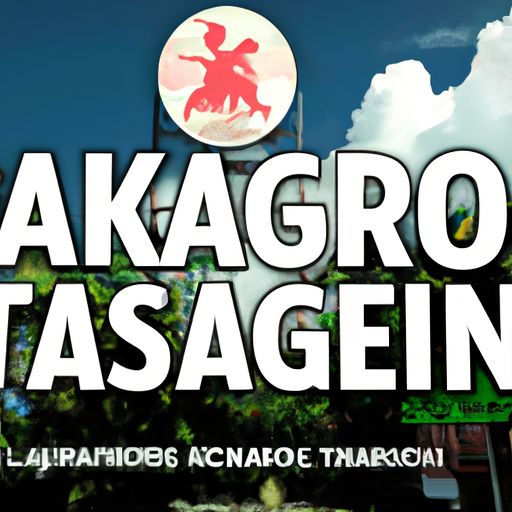Regulating POGOs: PAGCOR’s Role in the Philippine Online Gaming Industry

The Importance of PAGCOR’s Role in Regulating the Philippine Online Gaming Industry
The Philippine online gaming industry has been growing rapidly in recent years, with the rise of Philippine offshore gaming operators (POGOs) contributing significantly to the country’s economy. However, with this growth comes the need for regulation to ensure that the industry operates in a fair and transparent manner. This is where the Philippine Amusement and Gaming Corporation (PAGCOR) comes in.
PAGCOR is the government agency responsible for regulating all forms of gambling in the Philippines, including POGOs. Its role is to ensure that POGOs operate in compliance with Philippine laws and regulations, and that they contribute to the country’s economy in a positive way.
One of the key ways in which PAGCOR regulates POGOs is through the issuance of licenses. POGOs must obtain a license from PAGCOR in order to operate legally in the Philippines. This license is only granted to companies that meet certain criteria, such as having a minimum capitalization of $250,000 and a proven track record in the gaming industry.
PAGCOR also conducts regular inspections of POGOs to ensure that they are operating in compliance with Philippine laws and regulations. This includes ensuring that POGOs are not engaging in illegal activities such as money laundering or tax evasion, and that they are providing a safe and fair gaming environment for their customers.
Another important role of PAGCOR is to collect taxes from POGOs. POGOs are required to pay a variety of taxes, including corporate income tax, value-added tax, and franchise tax. These taxes are an important source of revenue for the Philippine government, and PAGCOR plays a key role in ensuring that they are collected in a timely and efficient manner.
In addition to its regulatory role, PAGCOR also plays a key role in promoting the Philippine gaming industry. It works closely with industry stakeholders to promote the Philippines as a destination for gaming and entertainment, and to attract foreign investment in the industry.
Overall, the role of PAGCOR in regulating the Philippine online gaming industry is crucial. Without effective regulation, the industry could become a breeding ground for illegal activities and could harm the country’s reputation as a safe and attractive destination for gaming and entertainment. PAGCOR’s efforts to ensure that POGOs operate in compliance with Philippine laws and regulations, and that they contribute to the country’s economy in a positive way, are essential to the continued growth and success of the industry.
In conclusion, the Philippine online gaming industry is a rapidly growing sector of the country’s economy, and PAGCOR plays a crucial role in regulating this industry. Its efforts to ensure that POGOs operate in compliance with Philippine laws and regulations, and that they contribute to the country’s economy in a positive way, are essential to the continued growth and success of the industry. As the industry continues to evolve, it is important that PAGCOR remains vigilant in its regulatory role to ensure that the industry operates in a fair and transparent manner.
Understanding the Benefits of PAGCOR Licensed Sports Betting

The Philippine Amusement and Gaming Corporation (PAGCOR) is the government agency responsible for regulating and overseeing the country’s gaming industry. One of the areas that PAGCOR has been focusing on in recent years is the regulation of Philippine Offshore Gaming Operators (POGOs).
POGOs are online gaming companies that are based in the Philippines but cater to customers in other countries. These companies offer a range of online gaming services, including sports betting, casino games, and online lottery. PAGCOR has been working to ensure that these companies operate in a safe and responsible manner, and that they contribute to the Philippine economy.
One of the key benefits of PAGCOR licensed sports betting is that it provides a safe and secure environment for customers to place their bets. PAGCOR ensures that all licensed sports betting operators comply with strict regulations and standards, which helps to protect customers from fraud and other illegal activities.
In addition to providing a safe and secure environment for customers, PAGCOR licensed sports betting also generates significant revenue for the Philippine government. PAGCOR collects taxes and fees from licensed sports betting operators, which are used to fund various government programs and initiatives.
Another benefit of PAGCOR licensed sports betting is that it helps to create jobs and stimulate economic growth. The online gaming industry is a major employer in the Philippines, and PAGCOR’s regulation of the industry helps to ensure that these jobs are created in a safe and responsible manner.
PAGCOR also works to promote responsible gaming practices among licensed sports betting operators. This includes providing education and training to operators on how to identify and prevent problem gambling, as well as implementing measures to protect vulnerable customers.
Overall, PAGCOR’s role in regulating the Philippine online gaming industry is crucial to ensuring that the industry operates in a safe and responsible manner. By licensing and regulating sports betting operators, PAGCOR helps to protect customers from fraud and other illegal activities, generates revenue for the Philippine government, creates jobs and stimulates economic growth, and promotes responsible gaming practices.
However, there have been concerns raised about the impact of POGOs on the Philippine economy and society. Some critics argue that POGOs have led to an increase in crime and social problems, and that they have not contributed enough to the Philippine economy.
PAGCOR has responded to these concerns by implementing stricter regulations and standards for POGOs, and by working to ensure that these companies operate in a responsible manner. PAGCOR has also been working to address the social and economic impacts of POGOs, by providing support to affected communities and by promoting responsible gaming practices.
In conclusion, PAGCOR’s role in regulating the Philippine online gaming industry is crucial to ensuring that the industry operates in a safe and responsible manner. By licensing and regulating sports betting operators, PAGCOR helps to protect customers, generate revenue for the Philippine government, create jobs and stimulate economic growth, and promote responsible gaming practices. While there are concerns about the impact of POGOs on the Philippine economy and society, PAGCOR is working to address these concerns and to ensure that the industry operates in a responsible manner.
The Legalization of Online Casinos and Betting in the Philippines: A Look at PAGCOR’s Regulations
The Philippine Amusement and Gaming Corporation (PAGCOR) is the government agency responsible for regulating the country’s gaming industry. In recent years, PAGCOR has been tasked with overseeing the online gaming industry, which has seen significant growth in the Philippines.
The legalization of online casinos and betting in the Philippines began in 2016, when President Rodrigo Duterte signed Executive Order No. 13, which allowed for the licensing and regulation of online gaming operators. This move was seen as a way to generate revenue for the government and create jobs for Filipinos.
PAGCOR was given the authority to issue licenses to online gaming operators, as well as to regulate and monitor their activities. The agency has since issued licenses to a number of Philippine Offshore Gaming Operators (POGOs), which are companies that offer online gaming services to customers outside of the Philippines.
PAGCOR’s regulations for POGOs include requirements for the operators to have a physical presence in the Philippines, to employ a certain number of Filipino workers, and to pay taxes and fees to the government. The agency also requires POGOs to implement measures to prevent money laundering and other illegal activities.
However, the rapid growth of the online gaming industry in the Philippines has also brought with it concerns about its impact on society. Some critics have raised concerns about the potential for gambling addiction and the exploitation of Filipino workers in the industry.
To address these concerns, PAGCOR has implemented measures to promote responsible gaming and protect the welfare of Filipino workers in the industry. The agency has required POGOs to provide counseling services for employees who may be struggling with gambling addiction, and has also established a hotline for workers to report any abuses or violations of their rights.
PAGCOR has also worked with other government agencies to crack down on illegal online gaming operations in the country. In 2019, the agency partnered with the National Bureau of Investigation to conduct raids on illegal online gaming operations, resulting in the arrest of hundreds of individuals and the seizure of millions of pesos in cash and assets.
Despite these efforts, the online gaming industry in the Philippines continues to face challenges. In 2020, the COVID-19 pandemic forced many POGOs to suspend their operations, leading to a decline in revenue for the government and job losses for Filipino workers.
In response, PAGCOR has implemented measures to support the industry, including the issuance of temporary licenses to POGOs that have been affected by the pandemic. The agency has also worked with the Department of Labor and Employment to provide assistance to Filipino workers who have lost their jobs in the industry.
Overall, PAGCOR’s role in regulating the online gaming industry in the Philippines has been crucial in ensuring that the industry operates in a responsible and sustainable manner. While there are still challenges to be addressed, the agency’s efforts to promote responsible gaming and protect the welfare of Filipino workers are a step in the right direction.





